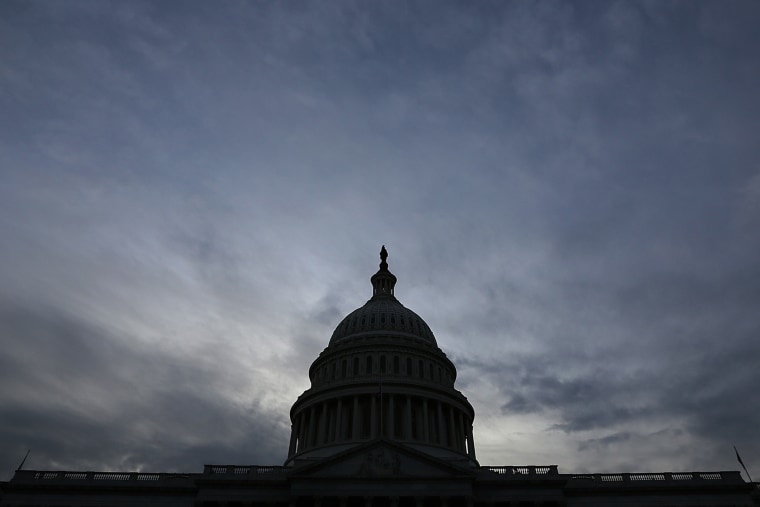Rep. Adam Smith (D-Wash.), the senior Democrat on the Armed Services Committee,
agrees that it would be "wise for Congress to come together and draft a grant of some authority" for President Obama to use force against ISIS targets in the Middle East. Smith just doesn't think it's possible -- not "in a million years."
"There is simply no way on earth that members of Congress are going to come together and agree on what the language for an authorization for the use of force in Syria is -- it's just not going to happen," Smith told the New York Times yesterday.
Of course, if Smith is correct, and I suspect he is, that's likely to cause a problem. Indeed, with the Obama administration launching airstrikes against ISIS targets and eyeing possible intervention in Syria, Congress' reluctance to meet its constitutional obligations is already a problem.
So what comes next? Some of this debate will have to wait -- lawmakers are still on their five-week break, and no one has even raised the possibility of them returning to work ahead of schedule. That said, House Armed Services Committee Chairman Buck McKeon (R-Calif.) made some
interesting remarks yesterday afternoon.
Congress should not give President Obama additional authority to combat the Islamic State in Iraq and Syria (ISIS) until the administration provides a strategy for defeating the militant group, House Armed Services Committee Chairman Buck McKeon (R-Calif.) said Wednesday.
McKeon said ISIS must be targeted, but that would demand a "comprehensive strategy" from the White House. "This comprehensive approach may well require additional authorities from Congress, but speculation about that before the president has even offered a strategy is putting the cart before the horse," the congressman said.
The California Republican added that the president must "explain to the American people what is at stake, what our objectives are, and the strategy for how to achieve them. Only after we understand all this can we contemplate what new authorities might be needed."
As best as I can tell, this was a new posture for GOP leaders, and though this is admittedly speculative, I think it offers a hint of the road ahead.
The line from congressional Republicans in recent weeks has generally demanded that the president expand military interventions, but there's also been one word in particular that GOP lawmakers have used repeatedly. It hasn't been subtle.
This was published yesterday.
[Sen. Bob Corker] chided the White House for not sharing its plans to defeat ISIS, saying he had checked in with the administration "several times" in recent days. "I haven't heard back," he said.
And
this was published the day before.
Rep. Michael Turner (R-Ohio) blasted President Obama on Tuesday for not having a "coordinated plan" to defeat the Islamic State in Iraq and Syria (ISIS).
And
this was published over the weekend.
Rep. Paul Ryan (R-Wis.) said Sunday that he isn't hearing enough from President Obama about plans to "finish off" militants from the Islamic State in Iraq and Syria (ISIS).
Time will tell, but if/when Congress fails to authorize force, Republicans won't want to be held responsible -- especially since they're the ones who've condemned the president for not using more force. This "where's his plan?" talking point may very well give the GOP an excuse to blame Obama.
"We might have been willing to authorize force," they'll say, "but we didn't like his plan."
In the meantime, among Senate Democrats, Sen. Tim Kaine (D-Va.) has been leading the charge in the call for congressional authorization, but apparently some of his colleagues would prefer to see him
dial it down a notch.
Vulnerable Democrats fighting for their political lives are frustrated that Kaine is pressing for a debate on giving President Obama new war powers at a time when the commander in chief has become a political liability for them. "Asking anybody to take that vote within two months of an election is just stupid. Why would you put people in that position?" said a Senate Democratic aide.
I don't know; maybe because of the Constitution?
